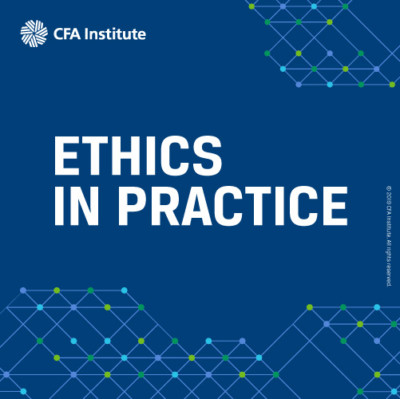Ethics in Practice: Investing Coworkers’ Retirement Assets. Case and Analysis–Week of 30 September
Published weekly since October 2017, welcome to the 100th Ethics in Practice case!
Case
Marcos, a baggage handler for a regional airline, learns about investing by reading books during breaks at work and participating in online seminars produced by the mutual fund family that sponsors the airline’s retirement account. He also obtains a few investment-related certificates, including the Investment Foundations® certificate from CFA Institute. He begins to manage the retirement accounts of a few friends and other airline employees who hear of his investing hobby by word-of-mouth. For a nominal flat fee of $300, Marcos “takes over” the employees’ airline retirement accounts, selects their investments, and makes their trades. With his colleagues’ permission, Marcos trades directly in their accounts by logging into their accounts, having the broker/dealer’s “activation code” for a trade sent to the employee, and then getting the employee to text him the code so he can complete the trade. Some of his fellow employees add Marcos’s email address to their account profiles so that the activation codes are sent directly to his email.
Marcos uses a market timing strategy for the mutual funds he selects. He invests his fellow employees’ assets in a single mutual fund available through the airline retirement platform and sells everything when he believes that the price is right. He then invests the assets in a bond fund while waiting to choose the next investment. When Marcos is added to a Facebook group for airline employees to post interesting “selfie” photos, he posts a picture of the retirement statement of one of his friends that shows close to $1 million in assets. None of the account holder’s identifying information is shown. This drives more airline employees to seek out Marcos to manage their retirement investments. Marcos starts his own Facebook group, which grows to 9,000 members, in which he promotes his investment prowess, answers questions about retirement investing, and posts information about the airline retirement plan. Eventually Marcos manages more than $110 million in assets for 934 fellow employees collecting more than $280,000 in fees. Marcos’s actions are
- appropriate because he is not an investment adviser but is informally assisting fellow employees.
- appropriate because he has the full permission of his colleagues to manage their retirement accounts in this manner.
- inappropriate because he is violating the Code of Ethics and Standards of Professional Conduct applicable to those who have earned the CFA Institute Investment Foundations certificate.
- inappropriate.
- none of the above.
Analysis
This case relates to knowledge of the law. CFA Institute Standard of Professional Conduct I(A): Knowledge of the Law states that CFA Institute members must understand and comply with all applicable laws, rules, or regulations governing their professional activities. Although Marcos is managing money for a group of friends and colleagues, he is engaged in activities that make him an investment adviser. He is advertising his services through his Facebook group, providing investment advice, making investment decisions, and trading on behalf of individuals for a fee. There is no indication that he has registered with the appropriate authorities as an investment adviser or taken any of the steps required of investment advisers, such as maintaining trading records, creating written client agreements, evaluating suitability of investments, and so forth. Although he has the permission of his “clients” to manage their investments, he has not properly registered as an investment adviser. And even though it would advisable and beneficial for any investment adviser to comply with the CFA Institute Code of Ethics and Standards of Professional Conduct, those earning the Investment Foundations certificate from CFA Institute are not required to abide by the Code and Standards. Choice D is the best response.
This case is based on a US SEC enforcement action from September 2019.
Let us know what you think of Ethics in Practice by taking this short survey.
Have an idea for a case for us to feature? Send it to us at [email protected].
More About the Ethics in Practice Series
Just as you need to practice to become proficient at playing a musical instrument, public speaking, or playing a sport, practicing assessing and analyzing situations and making ethical decisions develops your ethical decision-making skills. The Ethics in Practice series gives you an opportunity to “exercise” your ethical decision-making skills. Each week, we post a short vignette, drawn from real-world circumstances, regulatory cases, and CFA Institute Professional Conduct investigations, along with possible responses/actions. We then encourage you to assess the case using the CFA Institute Ethical Decision-Making Framework and through the lens of the CFA Institute Code of Ethics and Standards of Professional Conduct.
Image Credit: ©CFA Institute


B
C
C.
C. Inappropriate because he is violating the Code of Ethics and Standards of Professional Conduct applicable to those who have earned the CFA Institute Investment Foundations certificate.
How are his actions inappropriate if they do not violate the code of standards? How can D and C not be the same thing?